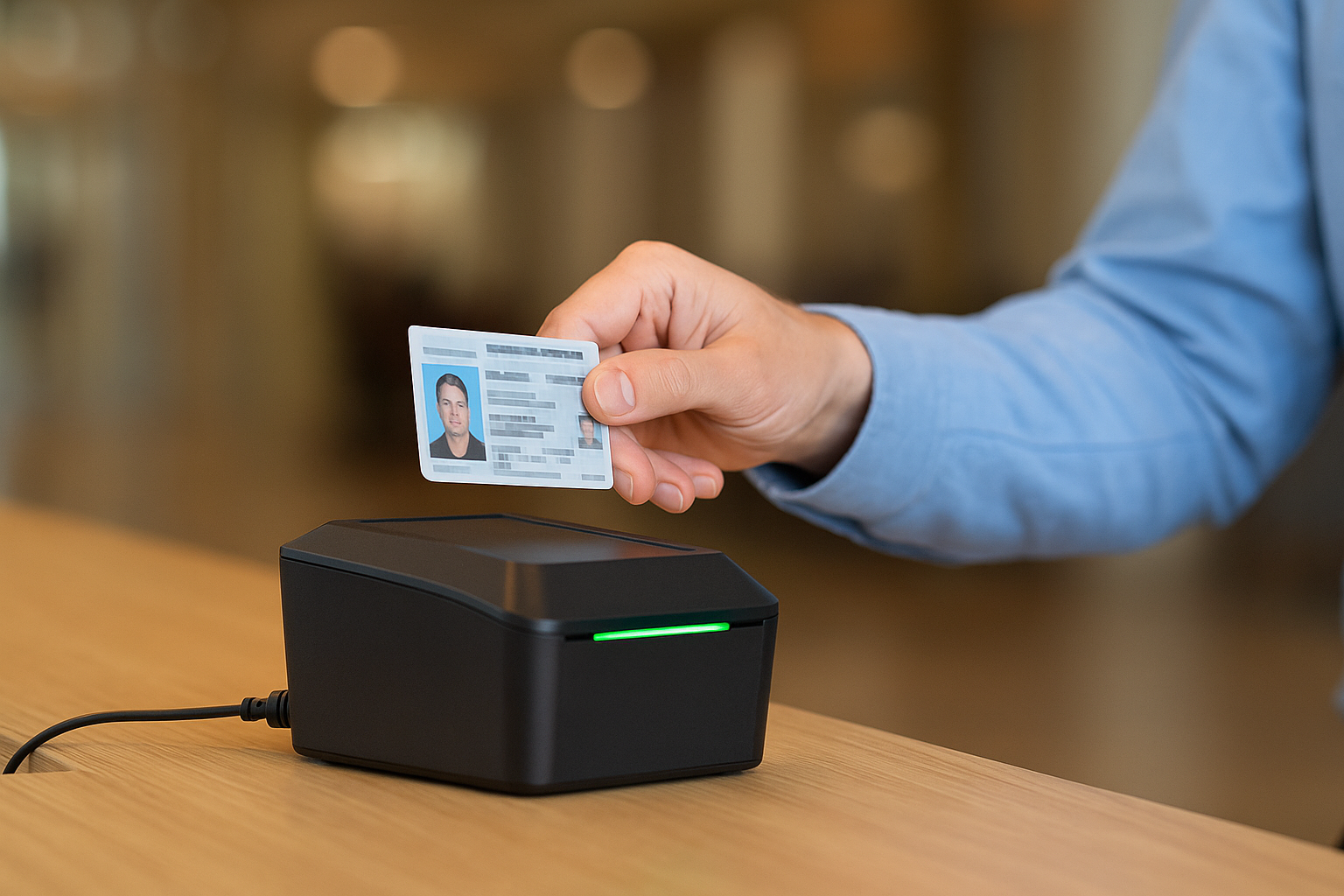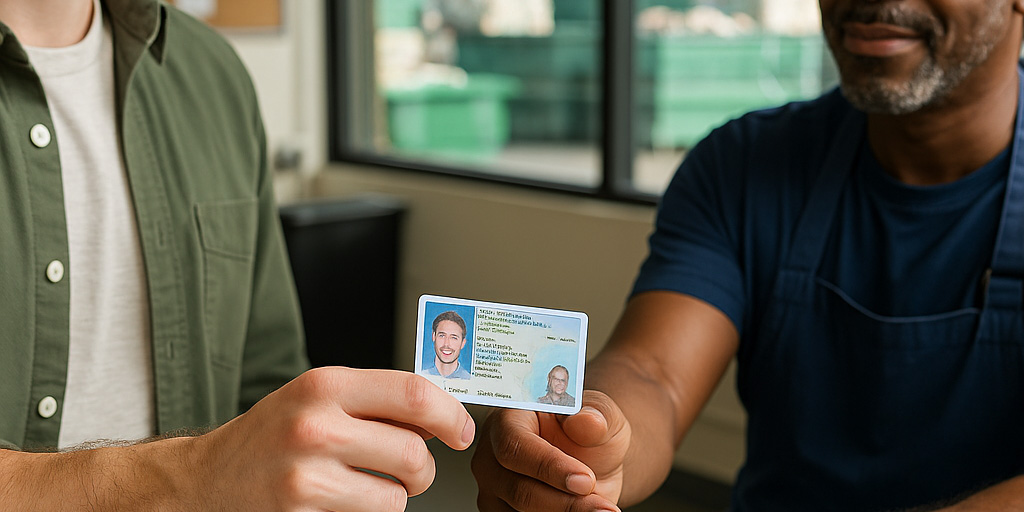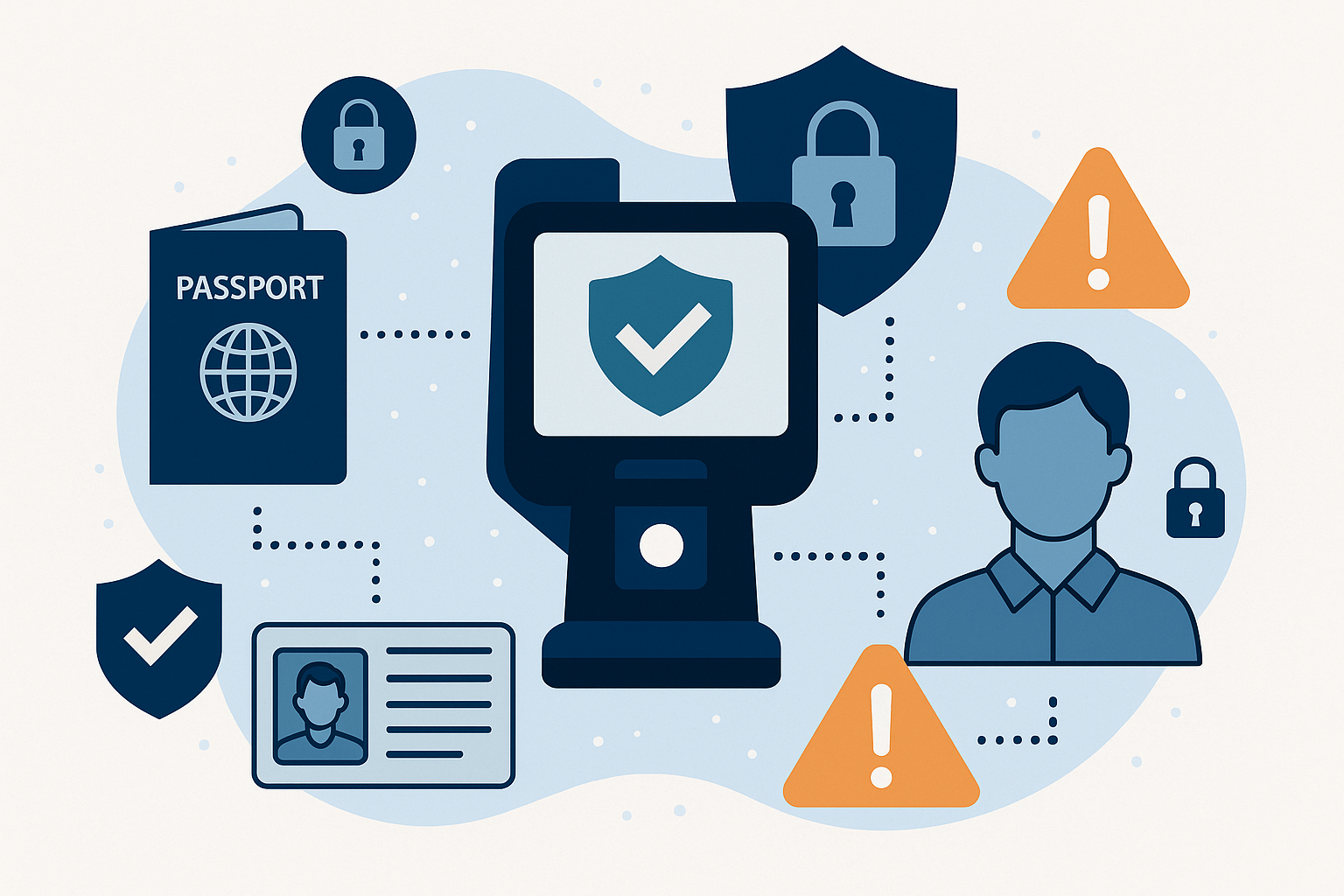Is It Legal to Scan IDs for Age Verification?
If you run a bar, dispensary, liquor store, casino, or any other age-restricted business, you know checking IDs is part of the job. But scanning them? That’s where things get a little more complicated — and where a lot of businesses hesitate. So let’s clear things up: yes, it is generally legal to scan IDs for age verification, but there are important rules about what you can do with that data.
This post breaks down the basics — when it’s legal to scan IDs, what data you can collect, and how to stay compliant while protecting your business from liability.
Why Businesses Scan IDs in the First Place
Manually checking IDs opens the door to human error. Scanning improves accuracy, speed, and security by:
- Verifying age instantly based on date of birth
- Detecting fake or expired IDs using embedded security features
- Reducing employee error during busy hours
- Logging entry attempts for added security or compliance
Industries like nightlife, cannabis retail, and gaming are especially vulnerable to underage access. Scanning IDs creates a digital record and helps you show due diligence in the event of a legal issue.
Is It Legal? Yes — With Conditions
In most states, it is legal to scan a government-issued ID to verify age or identity. But the legality shifts depending on why you're scanning and what you do with the data afterward.
✅ It’s legal to scan an ID to:
- Verify age before a sale or entry
- Prevent underage access to age-restricted products or services
- Detect fake IDs using authentication software or scanners
- Maintain compliance with state or local ID-checking regulations
🚫 It may not be legal to:
- Collect and store personal information without consent
- Use scanned data for marketing purposes
- Share or sell that data to third parties
Some states — including California, Texas, and New York — have specific privacy laws that limit what information can be stored from an ID scan, such as driver’s license numbers, addresses, or photographs.
What Data Can You Keep?
This varies by state, but here’s a general rule of thumb: keep only what’s necessary. If you’re scanning solely to verify age, most laws allow you to retain:
- Birthdate
- ID expiration status
- Scan timestamp (for logging purposes)
Storing more than that — like names, addresses, or license numbers — often requires written consent and may subject you to additional compliance obligations.
Stay Compliant With Smart Technology
The easiest way to stay compliant is to use an ID scanning system that automatically strips or ignores unnecessary data. Many of the Thales document scanners we recommend allow you to configure what information is captured, what’s stored, and what’s discarded in real time.
You can also configure some scanners to trigger alerts when a fake or expired ID is detected, or even integrate the scan with your visitor management or access control system to log entry attempts and automate badging.
Real-World Examples
- Bars & Nightclubs: Scan IDs at the door to log entry and reduce underage drinking liability.
- Cannabis Dispensaries: Verify age, prevent duplicate check-ins, and comply with state-mandated tracking.
- Casinos: Screen IDs at check-in to detect banned individuals or self-excluded gamblers.
- Pharmacies or Medical Clinics: Verify ID before dispensing controlled substances or patient information.
The Bottom Line
Yes — it’s legal to scan IDs for age verification, as long as you do it responsibly. The key is making sure your system collects only what it needs, protects customer privacy, and follows your state’s specific data regulations.
If you’re not sure where to start, we can help you choose a scanner that fits your workflow and keeps you compliant, whether you're verifying age at a liquor store or checking IDs in a high-security environment.
Explore ID Scanners That Keep You Compliant
Or contact us to talk through your use case and legal considerations.
Note: This blog post is for informational purposes only and does not constitute legal advice. Always consult your legal counsel to ensure compliance with local regulations.




